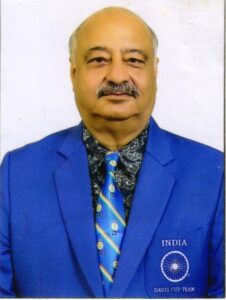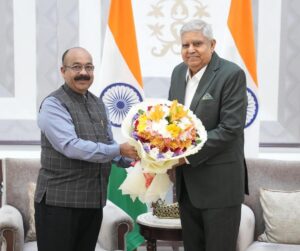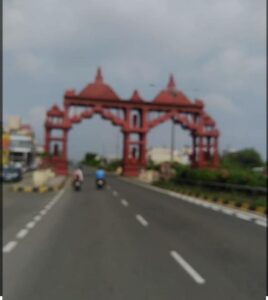MP High Court reserves judgment on Bhojshala Survey
2 min read
K K Jha
Indore. In a significant development, the Madhya Pradesh High Court has deferred its decision on a Public Interest Litigation (PIL) requesting a survey of Dhar’s Bhojshala akin to the Gyanvapi Mosque in Kashi. Following arguments from both sides concerning the 1902 survey of Bhojshala, the division bench of the High Court has reserved its judgment.
The petition, filed by the Hindu Front for Justice, demands an immediate cessation of Muslim prayer (Namaz) in Bhojshala and asserts the right of regular worship for Hindus.
Advocate Vinay Joshi, representing the petitioners, stated that an application for expedited proceedings was filed, resulting in the February hearing date. All concerned parties, including the government, have submitted their responses. The recent hearing included discussions on the temple survey.
Another counsel for the petitioner, advocate Vishnu Shankar Jain, emphasized their plea for a scientific survey by the Archaeological Survey of India (ASI), which would clarify the religious nature of Bhojshala.
Jain noted that while the court hasn’t issued any orders regarding the survey during the hearing, it has requested information on pending petitions related to Bhojshala in the Jabalpur bench of the MP High Court. The court analogized the Bhojshala case to that of Ayodhya, and visual evidence presented, including colored photographs, indicates Sanskrit inscriptions on the pillar and the presence of a Saraswati Mata Vagdevi temple. Additionally, an ASI report from 1902-03 mentions the temple’s existence. However, a 2003 ASI order allowed both puja and namaz at the site.
The Bhojshala complex, comprising the Bhojshala temple, Kamal Maula mosque, and Bhairo temple, has been subject to contention between the ASI and the Dhar district administration.
The ASI contends that the complex is a protected monument under the Ancient Monuments and Archaeological Sites and Remains Act, of 1958, and thus falls under its jurisdiction. Conversely, the Dhar district administration argues for local community management.
The ongoing dispute has seen arguments and evidence presented by both parties in court. The ASI emphasizes the site’s historical and cultural significance, advocating for specialized care. In contrast, the district administration argues for local management, alleging neglect by the ASI.
The High Court’s impending decision holds immense significance for the future management of the Bhojshala complex and its cultural heritage. The outcome will shape the preservation of India’s historical sites and address the balance between central and local control.
Bhojshala, an ASI-protected 11th-century monument, is claimed by Hindus as a temple of Vagdevi (Goddess Saraswati), while the Muslim community regards it as Kamal Maula Mosque. Presently, Hindus conduct puja on Tuesdays, while Muslims offer namaz on Fridays, as per an ASI arrangement made on April 7, 2003. Hindus perform puja on the premises every Tuesday, while Muslims offer namaz in the complex on Fridays.






